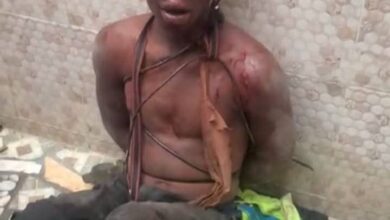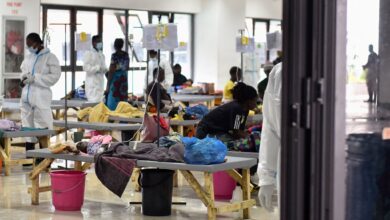Boko Haram attacks military bases, civilians in Borno

Boko Haram insurgents launched simultaneous attacks on military bases and civilians in Borno State.
On Tuesday, they stormed Damboa’s Wajirko army post, sparking intense clashes.
Simultaneously, militants raided a Nigerian-Cameroonian joint base in Wulgo, prompting troop retreats. Unconfirmed reports noted insurgent casualties amid rising chaos; communities now fear further strikes.
Meanwhile, an IED explosion struck the Maiduguri-Damboa-Biu highway, injuring a new Brigade Commander and killing two soldiers. The blast exposed critical route vulnerabilities.
Senator Mohammed Ali Ndume condemned escalating violence across Gwoza, Chibok, and nearby areas. “This disaster requires immediate action,” he stated, slamming delayed military aid for displaced families.
Additionally, he criticized severed travel routes, now diverting traffic through Gombe—a detour extending trips from two hours to twelve. Residents demand urgent infrastructure repairs.
He urged President Tinubu to deploy drones and adopt his TEAM strategy—Train, Equip, Arm, Motivate—to bolster troops.
Furthermore, the senator demanded swift rescue efforts for kidnapped Professor Abubakar El-Jummah and others abducted on the Maiduguri-Damaturu-Buni Yadi-Biu road. Their captivities deepened fears among residents already enduring instability.
Governor Babagana Zulum’s push to reopen roads and stabilize the region now falters as insurgents regain momentum. Security analyst Musa Ibrahim warned, “These attacks expose lingering weaknesses in our defenses.”
Federal authorities face mounting pressure to overhaul strategies in the Northeast and Northwest. While Borno police spokesperson ASP Kenneth Daso remained unreachable, citizens voiced desperation. “We’re tired of burying heroes,” said Maiduguri resident Fatima Usman.
Concurrently, stakeholders stressed that sustainable peace requires intelligence collaboration and sustained security investments beyond firepower. “The clock is ticking,” warned a regional negotiator, urging tech-driven surveillance and community engagement.
As nightfall heightens anxieties, displaced families recount harrowing escapes. “They burned our village and took our food,” shared Amina Aliyu, among hundreds sheltering in Maiduguri camps.
Economically, blocked routes strangle trade, spiking food prices and deepening poverty. Traders now avoid highways, paralyzing cross-border commerce with Cameroon and Niger.
Internationally, Cameroon’s military pledged tighter border coordination, yet attacks persist. A regional security summit is slated to address intelligence-sharing failures and resource gaps.
Locally, vigilante groups criticized weapon shortages, hampering their support for overstretched troops. “We need rifles, not promises,” argued militia leader Yusuf Bako, echoing widespread frustration.
President Tinubu’s office vowed “decisive measures,” but details remain vague. Observers demand transparency, recalling past unfulfilled pledges to modernize forces and protect schools.
Academics warn that prolonged insecurity threatens education, with 47 schools closed in Borno this year. “Children’s futures hang in the balance,” said UNICEF’s Borno coordinator, urging safe learning spaces.
Humanitarian groups report dwindling aid access, exacerbating malnutrition in hard-hit villages. “We’re racing against time,” said an MSF worker, citing looted clinics and fleeing medical staff.
As protests mount in Maiduguri, activists implore global attention. “The world forgets us, but we bleed daily,” declared youth leader Halima Abubakar during a somber vigil.
Hope flickers as community leaders advocate dialogue with repentant insurgents, mirroring past deradicalization successes. “Peace is possible, but we need courage,” urged cleric Sheikh Ahmed Goni.
With storms approaching, displaced families face flooding in makeshift camps, compounding their plight. “We need tents, not bullets,” pleaded mother-of-five Rukaya Mohammed, clutching a rain-soaked blanket.
The crisis spotlights Nigeria’s fragile security architecture, demanding urgent reforms. For Borno’s weary residents, resilience falters as they await tangible change amidst unrelenting terror.
Post Views: 84




